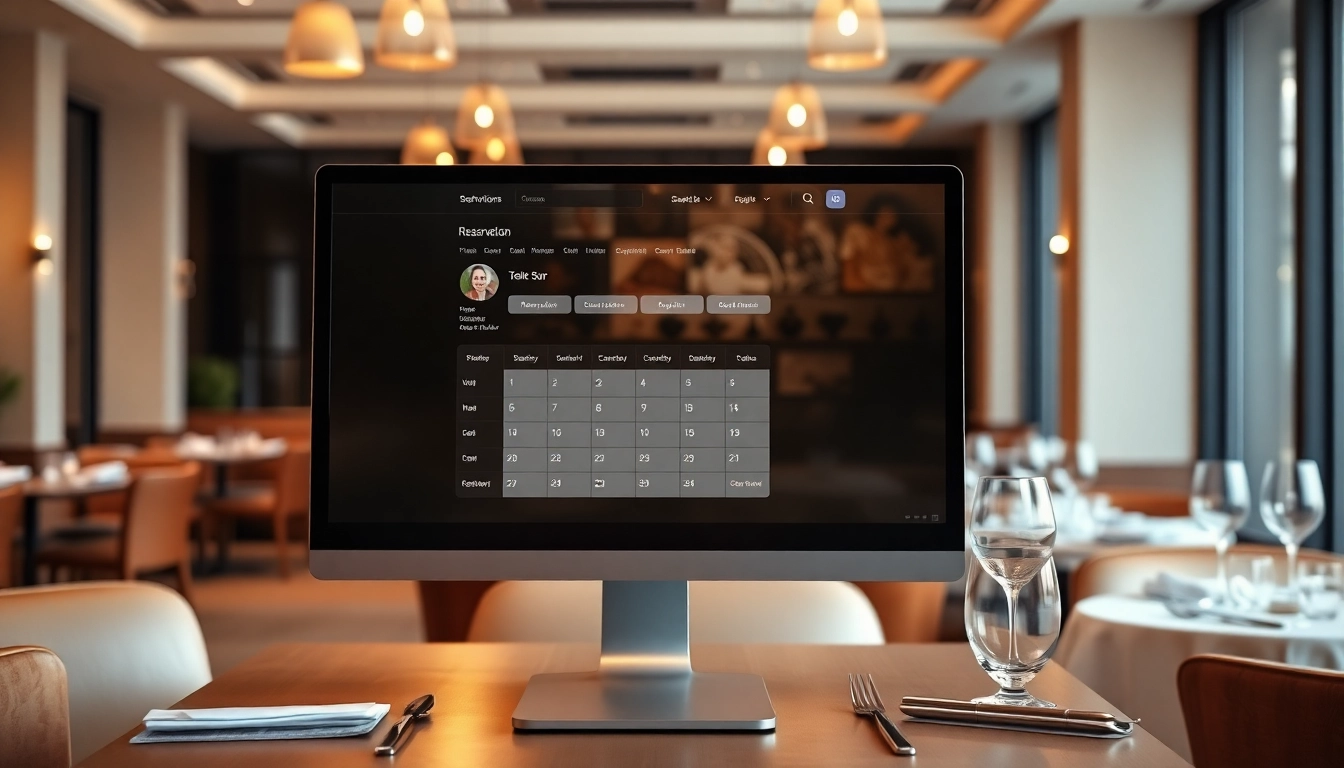Understanding Reservation Services
In an increasingly digital world, Reservation Services have emerged as essential tools for businesses across various industries, particularly in the hospitality sector. They streamline the booking process, enhance customer experience, and optimize operational efficiency. This comprehensive guide explores what reservation services are, their benefits, the technology behind them, and much more, to empower business owners to make informed decisions about implementing and optimizing these vital systems.
What are Reservation Services?
Reservation services encompass a range of systems and platforms that enable individuals or groups to schedule appointments, book tables, secure accommodations, or organize events. These systems can vary significantly across industries—from restaurants and hotels to salons and recreational facilities. At their core, they aim to facilitate the seamless booking of services, allowing customers to reserve spots in advance while providing businesses with the ability to manage availability and optimize resources.
Benefits of Utilizing Reservation Services
Adopting reservation services can yield numerous advantages for businesses:
- Increased Efficiency: Automated booking processes reduce the need for manual entry, minimize errors, and free up staff time for more critical tasks.
- Enhanced Customer Experience: A straightforward reservation process can enhance customer satisfaction, creating a better overall impression and likely leading to repeat business.
- Data Insights: Reservation systems often provide valuable analytics that can inform marketing strategies, staffing decisions, and customer preferences.
- Reduced No-Shows: Effective reminder systems can help mitigate no-show rates, ensuring that businesses maintain optimal capacity.
The Technology Behind Reservation Systems
Modern reservation services often incorporate advanced technology to enhance functionality and user experience. Key technological components include:
- Cloud-Based Platforms: Many services operate on cloud-based systems, ensuring real-time access to reservation data across multiple devices and locations.
- Integration Capabilities: The ability to integrate with customer relationship management (CRM) systems, point-of-sale (POS) systems, and e-commerce platforms allows for streamlined business operations.
- User-Friendly Interfaces: A well-designed interface enhances user experience, making reservation processes intuitive for both customers and staff.
Types of Reservation Services Available
Reservation services can be broadly categorized into various types, each tailored to meet the specific needs of different industries:
Online Reservation Platforms
Online reservation platforms like OpenTable and Tock allow users to secure reservations via a website or mobile application. These platforms often include features such as customer reviews, ratings, and loyalty programs, enhancing user engagement and satisfaction. They enable businesses to manage their bookings efficiently and can integrate with social media channels for broader reach.
Call-In Reservation Services
Though technology has advanced significantly, many businesses still offer call-in reservation services. This traditional method provides a personal touch, allowing customers to interact directly with staff if they have questions or specific requests. It can be particularly valuable for upscale dining experiences or services requiring customization.
Mobile App Reservation Systems
As smartphone usage has soared, mobile app reservation systems have become a preferred choice for many consumers. These apps offer convenience, enabling users to book services at their fingertips. Features may include notifications, exclusive promotions, and easy access to customer support, making them a strategic tool for businesses targeting tech-savvy audiences.
Best Practices for Implementing Reservation Services
To maximize the benefits of reservation services, businesses must adopt best practices during the implementation phase:
Choosing the Right System for Your Business
The first step is selecting a reservation system that aligns with your specific business needs. Consider factors such as:
- Business Type: Different types of businesses may require unique functionalities, so evaluate platforms that cater specifically to your industry.
- Scalability: Choose a system that can grow with your business, allowing for expansions without the need for major system changes.
- Budget: Analyze your available budget and consider both upfront costs and ongoing fees associated with the service.
Integrating Reservation Services with Customer Management
Effective integration of reservation services with customer relationship management systems can enhance customer insights, track preferences, and tailor marketing efforts. A unified system allows for better data analysis, enabling businesses to make informed decisions based on customer behavior and booking patterns.
Training Staff on Reservation Protocols
Staff training is crucial for the successful implementation of reservation services. Employees should be well-versed in the system’s functionality to assist customers effectively and manage reservations adeptly. Regular training sessions ensure staff members stay updated on best practices and new features.
Optimizing Customer Experience with Reservation Services
A seamless customer experience is paramount in hospitality and service industries. Here are key approaches to optimize this experience:
Providing User-Friendly Interfaces
An intuitive interface is essential for attracting and retaining customers. It reduces friction in the booking process, ensuring users can navigate the platform effortlessly. Regular user feedback should be sought to make necessary improvements.
Responsive Support and Customer Service
Offering effective customer support during the reservation process can significantly enhance satisfaction. Live chat options, accessibility via phone, and email support help in resolving queries promptly and building trust with the clientele.
Collecting Feedback for Continuous Improvement
Post-experience surveys and feedback forms can provide invaluable insights into customer preferences and pain points. Analyzing this feedback helps businesses make ongoing adjustments to improve their reservation systems continuously.
Measuring Success and Performance of Reservation Services
To assess the impact of reservation services, it’s crucial to track performance through various metrics and data:
Key Metrics to Track
Important metrics include:
- Reservation Conversion Rates: Monitor how many bookings are completed compared to those initiated.
- Customer Retention Rates: Track repeat customers to assess loyalty.
- User Engagement Levels: Examine the frequency of platform use and customer reviews.
Analyzing Customer Behavior Trends
By studying user behavior trends, businesses can identify peak booking times, preferred services, and demographic data about their clientele. This information allows for targeted marketing efforts and tailored service offerings.
Adjusting Strategies Based on Data Insights
Data analysis should drive strategy adjustments. If certain services are underperforming, businesses can reevaluate their marketing tactics, pricing strategies, or even the services’ features to better meet customer needs.
